PlantACT! - Plants for Climate Action: Growing a Resilient Society
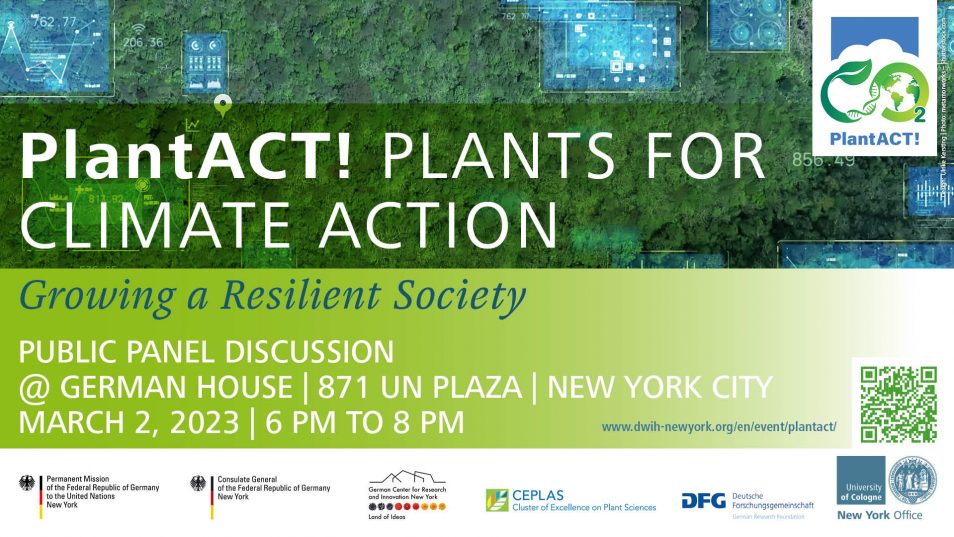 © University of Cologne
© University of Cologne
In an upcoming event hosted by the University of Cologne New York Office with the UoC Cluster of Excellence on Plant Sciences CEPLAS and partners, the new European initiative “PlantACT! Plants for Climate Action” will be promoted in the U.S. with a 2-day long experts’ workshop and a public panel discussion. These events will be organized in cooperation with the Permanent Mission of Germany to the UN, the German Consulate General New York, the German Center for Research and Innovation (DWIH) New York, and the German Research Foundation (DFG) North America. We thank the John Templeton Foundation for their generous support.
We are delighted to announce that Jamil Ahmad, Director Intergovernmental Affairs, UNEP New York, will give the keynote address at the panel discussion on March 2nd.
Event Recording
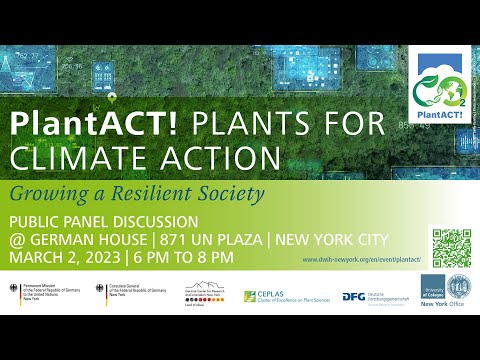
To play the video, click the thumbnail. Once activated data will be transmitted to the respective provider. Watch on YouTube
Panel discussion
This event showcases the PlantACT! initiative which brings together leading plant scientists and other stakeholders with the aim of tackling climate change challenges. From finding solutions to the future of global food production, to reducing agriculture-based emissions, PlantACT! shows research in action.
Join us on March 2nd at 6:00 PM (EST) to:
- Hear solutions by plant scientists from both sides of the Atlantic for a transition to sustainable agriculture and land use
- Learn how plants, soil and microbes can serve as actors for climate mitigation
- Discover how you can get involved with PlantACT! and contribute to interdisciplinary knowledge-exchange
- Enjoy music and a networking reception following the panel
Our Experts
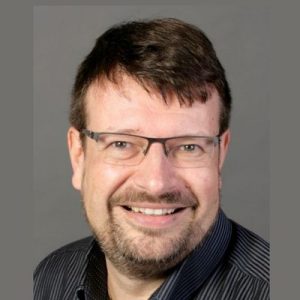
Stan Kopriva´s research aims to understand how plants integrate the uptake and utilization of key mineral nutrients with their needs, demand, and changes in environment and what is the role of micro-organisms in plant nutrition. He uses a combination of biochemical, genetic and physiological approaches and exploits natural variation. The research focuses on three areas: (1) molecular mechanisms of sulfur homeostasis and its integration in general plant metabolism; (2) alterations in mineral nutrition between C3 and C4 plants; and (3) metabolic signals in plant microbe interactions and their contribution to plant nutrition. Stan Kopriva is a deputy speaker of the Cluster of Excellence on Plant Sciences (CEPLAS) which addresses the grand challenge of food security in changing climate through world-class fundamental research on complex plant traits of agronomic relevance that impact on yield and adaptation to limited resources.Stanislav Kopriva, Professor, Institute for Plant Sciences, University of Cologne
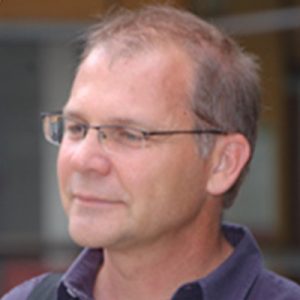
Herbert Hirt studied biochemistry at the Univ. of Cape Town and Vienna where he received his PhD in 1987. After post-doctoral fellowships at the Univ. of Oxford and Wageningen, he became Professor of Genetics at the Univ. of Vienna. In 2007, he was nominated Director of the INRAe Plant Genomics Institute in Paris and of the Center for Desert Agriculture at KAUST in 2014. Hirt has a long standing record on how plants can survive under abiotic or biotic stress conditions (h-index 93). His current research is focused on how plants can survive under abiotic or biotic stress conditions by identifying and using beneficial microbes of desert plants. His work aims to provide sustainable solutions to reestablish agriculture in arid regions by improving drought, heat and/or salt tolerance of a variety of crops.Heribert Hirt, Professor, Biological and Environmental Science, King Abdullah University of Science and Technology, Speaker PlantACT! Initiative
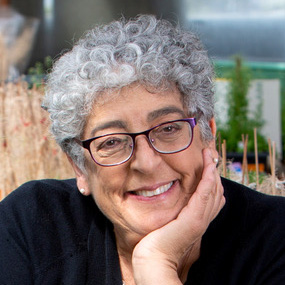
Joanne Chory is professor and director of the Plant Biology Laboratory at the Salk Institute for Biological Studies, HHMI Investigator, Howard H. and Maryam R. Newman Chair in Plant Biology and Director of Harnessing Plants Initiative (HPI). Chory is known for her studies that have shown how plants alter their shape and size in response to changes in their environment. Chory has served on numerous advisory committees and editorial boards, and has received multiple awards, most recently the Breakthrough Prize in Life Sciences (2018), Gruber Genetics Prize (2018), TED: The Audacious Project (2018), TED Talk, Vancouver (2019), Princess of Asturias Award for Technical and Scientific Research (2019), and the Pearl-Meister Greengard Prize (2020), BEZOs Earth Fund Award (2020), Paul Ecke Jr. Award of Excellence (2022), and the National Autonomous University of Mexican UNAM) – Honorary Degree for Outstanding Achievements in Biological Sciences (2022). She is a member of the U.S. National Academy of Sciences, the German National Academy of Sciences (Leopoldina), the American Philosophical Society, National Academy of Inventors, the American Academy of Arts and Sciences, and is a fellow of the American Association for the Advancement of Science. Joanne Chory is a foreign member of the Royal Society of London, a foreign affiliate of the French Academy of Science, and is an associate member of EMBO. Photo Copyright (c) Salk InstituteJoanne Chory, Professor and Director, Plant Molecular and Cellular Biology Laboratory, Salk Institute for Biological Studies
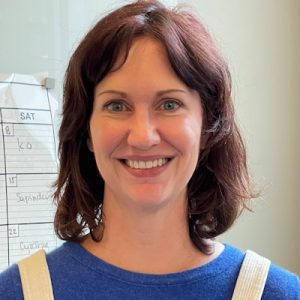
Cynthia Gleason is an associate professor at Washington State University in the Department of Plant Pathology. Her research program studies plant parasitic roundworms (nematodes) and developing new tools of plant resistance to these root pathogens. She first started working with plant parasitic nematodes as a graduate student at the University of California, Davis. Cynthia continued with research in plant-microbe interactions as a post-doctoral fellow at the John Innes Centre, UK and at the Commonwealth Scientific and Industrial Research Organization in Western Australia. In 2011, she moved to Georg August University in Goettingen, Germany, as a Junior Professor to start a group working in molecular nematology. Cynthia moved to WSU in 2016 to continue her research on plant parasitic nematodes and reducing grower reliance on chemical nematode controls.Cynthia Gleason, Associate Professor, Department of Plant Pathology, Washington State University
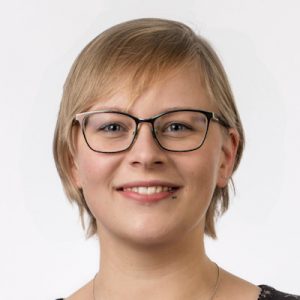
Svenja Augustin is a PhD student in the German Cluster of Excellence on Plant Sciences (CEPLAS). Her research focusses on the regulation of stem cell homeostasis in the shoot apical meristem of Arabidopsis thaliana. Since 2019, Svenja has also been actively involved in science communication on sustainable agriculture and genome editing in plant breeding. She is a board member of the association 'Eco-Progressive Network' and co-initiator of #GiveGenesAChance, a European campaign by early-career researchers to promote an evidence-based regulation of genome edited plants and support science communication efforts towards the general public as well as policy makers. Svenja served as an expert in a public hearing of the Committee on Food and Agriculture of the German parliament and took part in various seminars and panel discussions on the regulation and potential of genome editing for a sustainable and resilient agriculture.Svenja Augustin, PhD Student, Cluster of Excellence on Plant Sciences (CEPLAS)
Moderated by
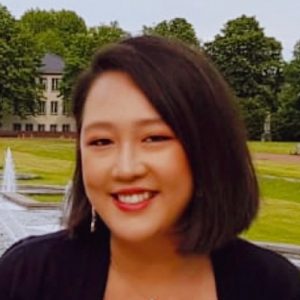
Dr. Yaena Kwon is a multilingual broadcast journalist from Germany, primarily reporting for the public broadcasters ZDF and WDR. She studied at the University of Cologne and received her Ph.D. in Political Science, after research stays at Korea University, Waseda and U.C. Berkeley. As an expert on transatlantic relations, Asia and U.S.-Asia relations, Yaena Kwon has been working as a moderator and speaker in multiple countries. Currently, she is a Visiting Scholar at Harvard University.Yaena Kwon, Freelance Journalist, Harvard University
Music by
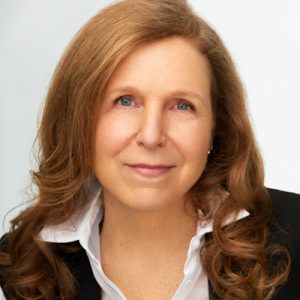
Internationally celebrated American pianist Carolyn Enger has gained critical acclaim for her lyrical and dynamic playing, as well as her deeply felt interpretations. In addition to an active performance schedule on two continents, Ms. Enger has enjoyed remarkable success as a recording artist. Recently her article, The Mischlinge Exposé: Stories of Assimilation and Conversion, was published in the book Women Defying Hitler: Rescue and Resistance under the Nazis, by Bloomsbury Academic. This past winter Carolyn showcased her immersive film/sound project Resonating Earth, in a residency with Musica Sierra and the public school children in the Sierra Valley, California. Ms. Enger studied at the Manhattan School of Music and is a Steinway Artist.Carolyn Enger, Pianist
Welcome Rounds Panel
- Christian Hannemann, German Permanent Mission to the United Nations in New York
- Mariella de Carvalho, German Consulate General New York
- Georg Bechtold, German Research Foundation (DFG) North America
- Julia Helmes, German Center for Research and Innovation
Moderated by:
- Eva Bosbach, University of Cologne New York Office
Keynote
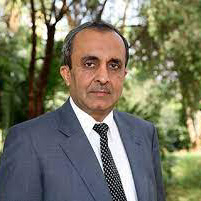
Jamil Ahmad is a passionate advocate of sustainability. He regularly engages with governments, academia, industry, and speaks to official delegations, students, civil society, and others about environment, climate change and sustainable development. He joined UN Environment in 2008 as the Secretary of the Governing Bodies based in Nairobi, Kenya (2008-14). He led the organization of the sessions of the Governing Bodies and served as the focal point of UN Environment’s external relations. A senior career diplomat, Mr. Jamil Ahmad entered the Foreign Service of Pakistan in 1986 and has worked in several duty stations across Asia, Europe, and Africa with rich experience of multilateral affairs and sustainable development. He participated in numerous important UN and other intergovernmental meetings, including the World Summit on Sustainable Development, sessions of the United Nations General Assembly, the Commission of Sustainable Development and the Governing Councils of UNEP, UN- HABITAT and Food and Agriculture Organization. He was the lead negotiator on Climate Change for the Group of 77 & China, representing more than 130 member countries in climate change talks in 2007 under UNFCCC.Jamil Ahmad, Director Intergovernmental Affairs, UNEP New York
Expert Workshop (by invitation only)
If you are working in the field of plant sciences, environment, food security, or climate research and would like to actively participate in the workshop, kindly contact Dr. Eva Bosbach.
March 2: 9 AM – 5 PM
March 3: 9 AM – 12 PM
Event Information
March 2, 2023, 6:00 PM to 8:00 PM
German House, New York City
Organizer(s): University of Cologne New York Office, CEPLAS Cluster of Excellence on Plant Sciences, Permanent Mission of Germany to the UN, German Consulate General New York, German Center for Research and Innovation (DWIH) New York, German Research Foundation (DFG) North America
This panel discussion was recorded and can be watched later in the playlist “University of Cologne New York Office // Events” on the YouTube channel of the University of Cologne.
German House
German Consulate General New York
Address:
871 United Nations Plaza
New York, NY 10017
Phone:
(212) 610 - 9700
Email:
events.newyork@dwih.org
